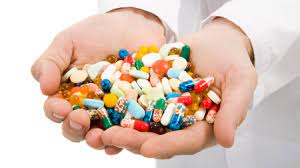
BY MENGISTEAB TESHOME
Poor-quality medicines present a serious public health problem, particularly in emerging economies and developing countries, and may have a significant impact on the national clinical and economic burden.
Following this, attention has largely focused on the increasing availability of deliberately falsified drugs and sub-substandard medicines that are also reaching patients because of poor manufacturing and quality-control practices in the production of genuine drugs.
Substandard medicines are widespread and represent a threat to health because they can inadvertently lead to healthcare failures, such as antibiotic resistance and the spread of disease within a community, as well as death or additional illness in individuals.
Cognizant of the danger, The Ethiopian Food and Drug Authority in collaboration with Addis Ababa Food and Drug Authority has been engaged in ensuring the safety, quality and efficacy of medicines as well alerting communities on counterfeited and substandard pharmaceuticals products and other related issue.
Speaking to The Ethiopian Herald Ethiopian Food and Drug Authority Director General, Heran Gerba noted that the Authority has been undertaking various regulatory activities, and one of the areas that has got top priority and has been implemented accordingly was the medicine market authorization system.
Further than this, the Authority uses a national drug advisory committee for the assessment and registration of medicines as well evaluate whether products that are manufactured within the nation are abide by Good Manufacturing Practice (GMP) – a system that controls and ensures that products are consistently produced and controlled according to quality standards.
Ethiopia is working along with Intergovernmental Authority on Development (IGAD) Member States and other international bodies to minimize the risks involved in any pharmaceutical production that cannot be eliminated through testing the final product.
Ethiopia’s effort has evolved through the years to improve the medicine dossier evaluation system. As the socioeconomic development of the nation is transforming, there is a high flow of investments in healthcare. However, the market authorization system available at this time is yet unable to satisfy and fully accommodate the demands coming into the country, she remarked.
Substandard medicines and products of food and cosmetics plus other related products demand the whole communities’ engagements and the Authority is working to alert in more organized fashion.
However, efforts are underway; the sector is facing various challenges because the communities have not owned it and; be part of the effort in ensuring safety and quality efficacy of medicines. This reality is getting worse because of the surging prevalence rate of COVID-19 pandemic, the negligence among communities coupled with illegal trafficking of substandard medicines, cosmetics and food at the various routes at the border spotted throughout the nation.
She further noted that the Authority in collaboration with pertinent stakeholders is working to offer quality, safe and effective medicines in the pursuit of protecting public health through its competent and dedicated structures.
Mentioning the danger is being imminent if trends in the prevalence of counterfeit/substandard drugs continue at the current scale, she said there is a huge threat to interventions underway on major killer diseases in the developing world. So, public health interventions in developing countries should include quality control of antimicrobials as an integral part of program implementation. The national drug regulatory authorities in those countries should also be strengthened to enhance their capacity in enforcing regulations pertaining the registration, production, distribution and use of antimicrobial drugs.
Ethiopia is working to address the challenge in coordinated fashion and create informed communities towards the illegal practices happening in the sector.
The Authority is duty bound to protect the health of consumers by ensuring food quality and safety, efficacy and proper use of medicines, plus quality and performance of medical devices in urban and at the hinterlands.
According to various sources, in Ethiopia during the past few decades, the trade of substandard and counterfeit medicines has increased alarmingly. Past experiences indicate that almost any kind of medicine can be counterfeited. In developing countries, primary targets are those antimicrobials that are commonly used in the treatment of life-threatening conditions including malaria, tuberculosis and HIV and AIDS. Some research findings also support the strong contention that substandard and counterfeit antimicrobials are available in the developing world in very high proportions. This is becoming one of the major causes of treatment failures leading to excessive mortality and morbidity. Moreover, it is implicated for contributing to the development of drug resistant organisms in many infectious diseases of public health significance such as malaria, tuberculosis and HIV and AIDS.
Following the commitment of the Authority, in collaboration with respective regional States’ authorities awareness creation platforms was organized in Dessie, Jijiga, Arbaminchi towns that could help and let communities be aware of counterfeiting activities, what kind of crime it is, how it could be protected and how to inform legal bodies if they could come across any illegal activities.
As to Heran, the communities were responding to the call of the Authority positively and pledged to fight and curb the illegal activities. “And we can say our mission was successful though it is not over. We want to strengthen further and till informed communities are created.”
At this juncture, the Authority is committed to promote and protect the public health by ensuring safety, efficacy and quality of health and health-related products and services through product quality assessment and registration; licensing and inspection of health professionals, health institutions, pharmaceutical and food establishments, and provision of up-to-date regulatory information as well as promoting proper use of health and health-related products and services including proper use of medicines.
The Ethiopian Herald 22 April 2021





